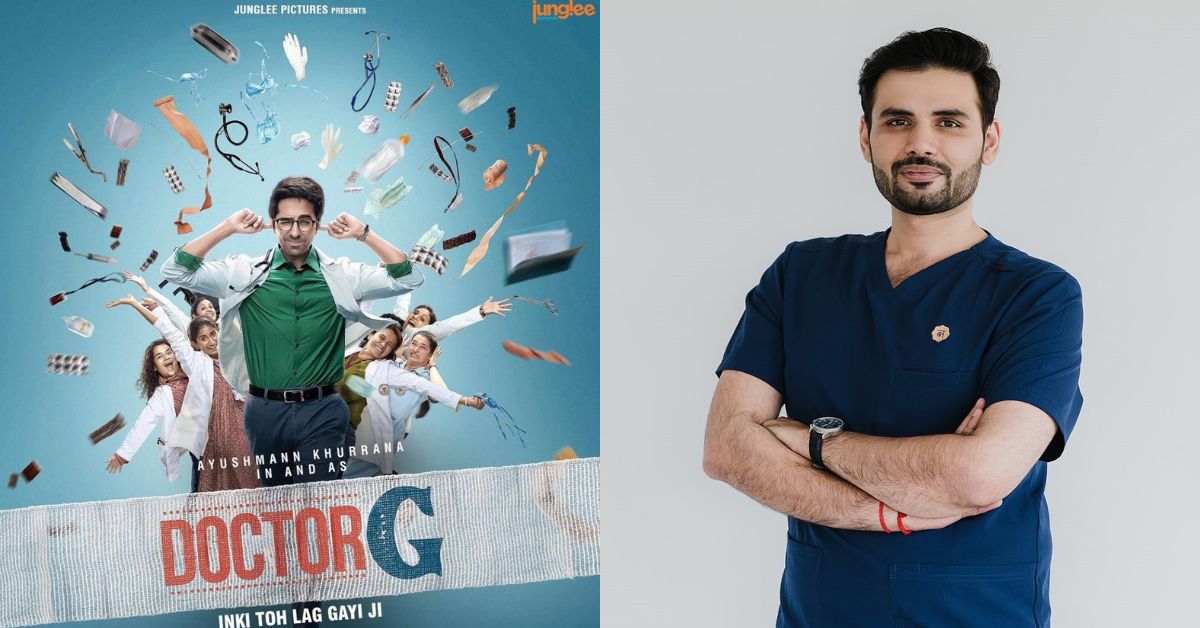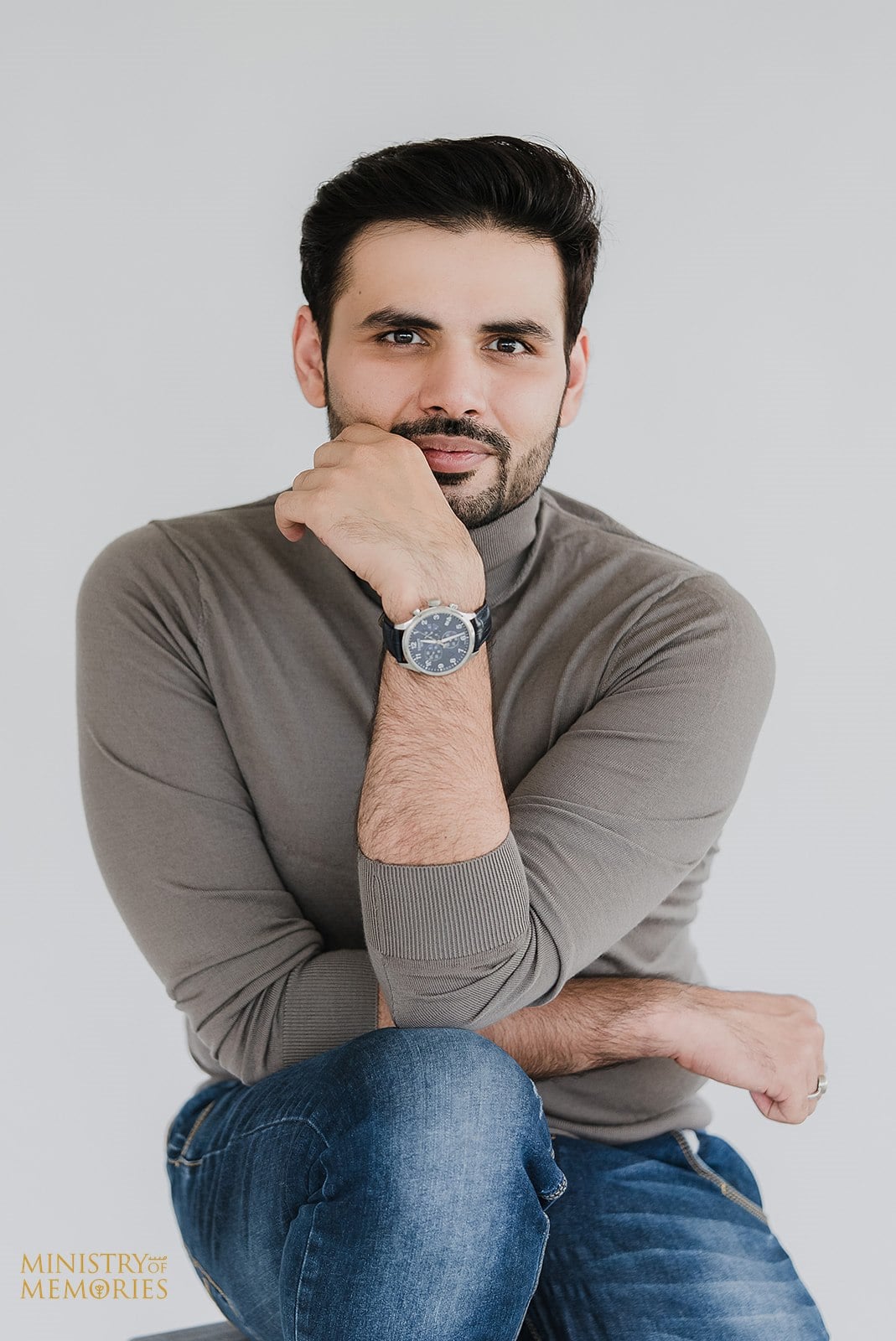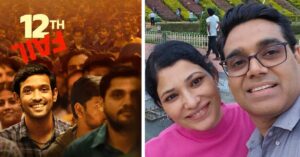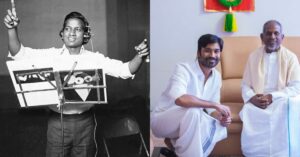Doctor G: ‘See Skills, Not Gender,’ Says Doc on What It’s Like to Be a Male Gynaec
With the release of Doctor G, we speak to Dr Yuvraj Jadeja, a fertility specialist, to understand what it’s like to be a male gynaecologist in India, and why he encourages patients to look beyond gender.

Radha was shocked when she found out that she was pregnant. And the fact that it had only been a few months since she had moved to Chennai, as well as that she was unmarried, added to her woes.
“After visiting one or two doctors who were well in their 50s, I had a horrible experience. They were just so judgmental and insisted that I get my mother. I didn’t have any support system in the city except for my boyfriend. I then found a doctor on Instagram, who happened to be male. He claimed to be non-judgmental, and to my pleasant surprise, he was. He made me feel comfortable, helped me with my options, and didn’t make me feel as though I had committed a crime like the previous doctors did,” she says.
For many young women like Radha today, the gender of their gynaecologist doesn’t matter. What is important, however, is the treatment and attitude, which they say must be non-judgemental.
Which is why a movie about the troubles faced by a male gynaecologist has created a lot of interest. Doctor G starring Ayushmann Khurana released in theatres on 14 October.
The trailer of the film, released almost three weeks ago, created a buzz especially among the medical fraternity. In the comedy film, Khurrana plays Dr Uday Gupta, who finds himself the only male student at the gynaecology department of a college.
The trailer shows him being beaten by a patient’s husband and his unwillingness to choose gynaecology as a specialisation as his heart is set on orthopaedics. Is this truly the case? Do male gynaecologists not get the respect a female gynaecologist does?
The Better India spoke to Dr Yuvraj Jadeja, medical director at Nimaaya Centre for Women’s Health in Gujarat.
Choosing gynaecology

Unlike the movie, Dr Yuvraj knew he wanted to be a gynaecologist when he was in second year of medical college.
“When I was in medical school and saw my first labour, I knew that this is what I wanted to do. I also saw some medical issues in my house, which inspired me to take up the subject. My mother went through a very bad phase of menopause when I was in medical school. This got me reading up a lot about it. Another relative went through infertility. As I delved into the subject, I developed a keen interest in it and started loving it. I felt that this is what I was meant to do,” he explains.
However, not everyone was that supportive. His parents were sceptical about him choosing gynaecology as a major, he says.
“I am actually the first doctor in my family, in fact in my village as well. When I did my MD in 2012, people weren’t that aware, they weren’t supportive. They said, ‘You are a man, why don’t you become a neurosurgeon or cardiologist?’ They also thought that patients would not come to me as I was a man. However, I stood my ground,” he adds.
Dr Yuvraj was also the only male when he pursued his MD in Obstetrics & Gynaecology from Pramukhswami Medical College in Karamsad, Gujarat. He opines there is a little truth in the trailer when it shows the hesitancy of patients.
“In most medical colleges and training institutes, the education levels of patients are not that high. So they have some doubt when it comes to consulting a male gynaecologist. But they don’t have the luxury of choosing a doctor in such training setups,” adds the fertility expert.
He says that generally, people in the west and south are more accepting of male gynaecologists.
“We see many male gynaecologists in Gujarat, Mumbai and in the south. We don’t really see discrimination when it comes to the gender of the doctor in such areas. Places with a better education and awareness have higher acceptance. A female surgeon operates on male patients and there is no issue. Similarly, the reverse is also okay. But what I have noticed with patients who come from rural areas is just that they are shy. Once you make them feel comfortable, it’s fine,” he says.
But he opines that most of the trailer is exaggerated.
It is mandatory in India that a female must be present when a male doctor examines a patient. Also, things like a doctor asking a patient to undress herself never happens. We treat patients with utmost respect, and never say crass things like that. We are never alone in the room with the patient,asserts the 35-year-old.
‘Choose a doctor based on skill, not gender’
When Uma found out that she was pregnant, she immediately started enquiring about good gynaecologists. Her friends guided her to a senior male gynaecologist near her house. And today, as her son is set to turn one, she says it was the best decision of her life.
“Initially, while I wanted to see the male gynaecologist, he wasn’t available. So the first two consultations were with a female doctor in the same hospital. I found such a vast difference in the approach of the two doctors. When I shared my symptoms, like vomiting, the female doctor said it’s natural and would go away in a while. The male doctor took time to hear my problems and was much more empathetic, and gave me solutions. He was also very gentle during scans and examinations. He took care and answered all my doubts,” says Uma.
Even today, she says, she really misses her doctor.
Dr Yuvraj also says that doctors strive towards the comfort of their patients.
“See, when you are examining the opposite gender, you are more aware. You don’t want them to feel uneasy or uncomfortable. We first chat with the patients, make them feel comfortable. We examine them only after that. We are also more sympathetic towards their problems and take extra steps to communicate with them,” he notes.
Being on social media and having over 40,000 followers on Instagram does help connect with patients too, Dr Yuvraj says. “Some patients come to me after seeing my posts on Instagram. They connect with you that way.”
As far as passing judgements on patients is concerned, he observes, “A gynecologist deals with sexuality, sexual health, premarital sex, teenage pregnancy, sexually transmitted infections (STIs)…Even when I did my MBBS, which was from 2004-2009, we were never taught to not show judgement. We have learnt that along the way. We’ve learnt that gender is beyond male and female, and today, I run a queer-friendly practice. We as doctors must treat patients well, without judging them.”
He says that when it comes to a woman’s health, the priority must be to go to the right doctor, irrespective of their gender.
As far as medicine and health are concerned, proper treatment and the right doctor are important. And patients can always change their doctor if they aren’t happy. I’ve had so many patients coming to me after visiting other doctors. Similarly, my patients may also go to other doctors if they aren’t satisfied with my treatment. You should choose a doctor based on their professional degree, work, consultation, the way they treat you, and the resulthe advises.
Today, gynaecology has several specialisations. This has helped male gynaecologists and young doctors, he says.
“In most cases, it’s only when women come for a vaginal infection or general checkup that they feel uncomfortable with a male doctor. Today, there are so many specialties like infertility, gynaecological cancers, etc. When patients have been struggling with infertility for years, they cross the stage when the gender of the doctor matters,” he adds.
Dr Yuvraj also advises aspiring male gynaecologists to take up the speciality if they truly like the subject. “The gap between genders in terms of our profession is closing. It’s much easier today than, say, 15-20 years back. We have such senior doctors who’ve been practising for 30-40 years. You should not be worried about your gender. The only thing that matters is that you should love the subject, as you are going to work with it for the next 40 years.”
Edited by Divya Sethu, Images Courtesy Dr Yuvraj Jadeja
This story made me
- 97
- 121
- 89
- 167
Tell Us More
We bring stories straight from the heart of India, to inspire millions and create a wave of impact. Our positive movement is growing bigger everyday, and we would love for you to join it.
Please contribute whatever you can, every little penny helps our team in bringing you more stories that support dreams and spread hope.




















